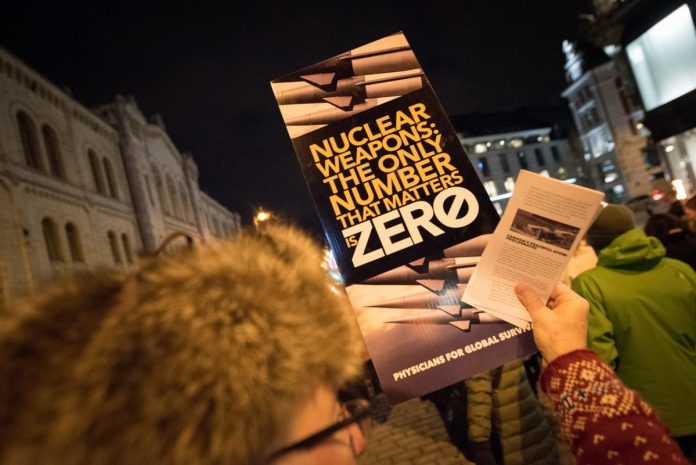The World Council of Churches (WCC) welcomes and celebrates the ratification by 50 States of the Treaty on the Prohibition of Nuclear Weapons (TPNW), which seeks for the first time to establish a comprehensive ban on the development, testing, production, stockpiling, stationing, transfer, use and threat of use of nuclear weapons, as well as obligations for victim assistance and environmental remediation.
The World Council of Churches (WCC) welcomes and celebrates the ratification by 50 States of the Treaty on the Prohibition of Nuclear Weapons (TPNW), which seeks for the first time to establish a comprehensive ban on the development, testing, production, stockpiling, stationing, transfer, use and threat of use of nuclear weapons, as well as obligations for victim assistance and environmental remediation.
For decades, the WCC has advocated at the international level for cooperative efforts to prohibit the development, testing and use of nuclear weapons, and has worked with churches to impress upon their governments the immorality of nuclear weapons and the need for their total elimination.
“The 50th ratification is a major landmark on the road towards the total elimination of nuclear weapons” explains Peter Prove, director of the Commission of the Churches on International Affairs. “It has now triggered the 90-day period after which the Treaty will enter into legal force, meaning that a new normative standard in international law has been created, and that – for those States which are parties to it – the Treaty must now be implemented.”
Critics of the TPNW – especially the governments of the nine countries which continue to hold and develop nuclear weapons, and those of countries which believe themselves to be protected under the “umbrella” of nuclear-armed States – seek to minimize its significance by pointing to the fact that the States which have ratified the Treaty do not have any nuclear weapons anyway.
Although the TPNW does not bind the States that are not parties to it, it creates a new global norm towards rejecting nuclear weapons, which is expected to influence and constrain their behaviour. As Dr Emily Welty, vice-moderator of the WCC’s Commission of the Churches on International Affairs (CCIA) and disarmament academic and activist explains, “a glance back into the history of other treaties which have banned weapons such as cluster munitions, land mines, chemical and biological weapons, demonstrates how a legal ban can influence the behaviour of all States. As those weapons became increasingly delegitimised and stigmatised around the world, governments responded positively to the growing internal and external pressure they were facing to be on the right side of history, and finally committed to a complete legal ban on such weapons.”
As well as the growing stigma attached to the possession of such weapons of mass destruction, the governments of the nine nuclear-armed States are facing increased domestic anger regarding the vast sums they spend each year to maintain and develop their nuclear weapon arsenals when these resources could instead be applied to support health care, education and all the other essential services needed to protect people from the current pandemic and to avoid another.
The States who are parties to the Treaty, as well as observer States, will convene for a first meeting of TPNW States Parties sometime next year, and take decisions regarding its implementation. Relevant institutions and non-governmental organizations can also take part, as observers.
WCC, oikoumene.org















